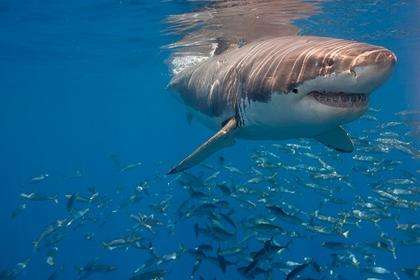Shark! Scientists Try to Count Every One in the Sea
 A spike in shark attacks has been reported along parts of the U.S. coast this summer. However, some biologists have said that global shark populations are actually at an all-time low.
A spike in shark attacks has been reported along parts of the U.S. coast this summer. However, some biologists have said that global shark populations are actually at an all-time low.
During the annual TV frenzy for Shark Week on the Discovery Channel, a group of scientists have announced their intention to find out exactly how many of the oceanic predators are lurking in the depths worldwide.
Global FinPrint begins this summer, and will count every shark they can find, by laying cages of bait near underwater cameras at biodiversity hotspots along the ocean floors, according to the group of international scientists who are committed to the endeavor.
Over three years, the cameras will capture the investigating predators on camera and count them, at 400 important reef locations where little information about sharks exists – the Indo-Pacific, the tropical western Atlantic, and the southern and eastern Africa and Indian Ocean islands, they said.
“Recent estimates suggest around 100 million sharks are taken from the oceans every year for their fins and meat,” said Mike Heithaus, a marine biologist at Florida International University, who is part of the study. “This is resulting in severe population declines for some species… This global survey will fill in data gaps that could help governments, fisheries and others better understand and conserve these important predators.”
The characteristics of the reefs, including coral cover, fish population, fishing pressure and water temperature, which could provide a blueprint for future conservation efforts, said the scientists.
Paul G. Allen, the multi-billionaire co-founder of Microsoft, is providing funding for the work.
READ MORE: Spiders, Known to Fly, Also Adept Sailors
A recent spate of attacks in North Carolina has captured the imagination which of the public. But according to shark experts, populations are likely at an all-time low – and it’s the human population which could be driving an increase in the number of reported encounters, along with unknown oceanographic factors.
But those encounters belie the population estimates, they said.
“Global FinPrint will help us better understand one of the ocean’s great mysteries: What is happening with fragile marine ecosystems when sharks are removed?” said Demian Chapman of Stony Brook University in New York, one of the researchers. “Are coral reefs healthier or faster to recover from disturbances like coral bleaching or hurricanes because they have sharks? These are hugely important questions. Many countries rely on health coral reefs for food security, tourism and coastal protection.”
The FinPrint results are expected to be complete in 2018. They will be available to the public in an open-access format through Allen’s company, Vulcan, Inc., they said.




